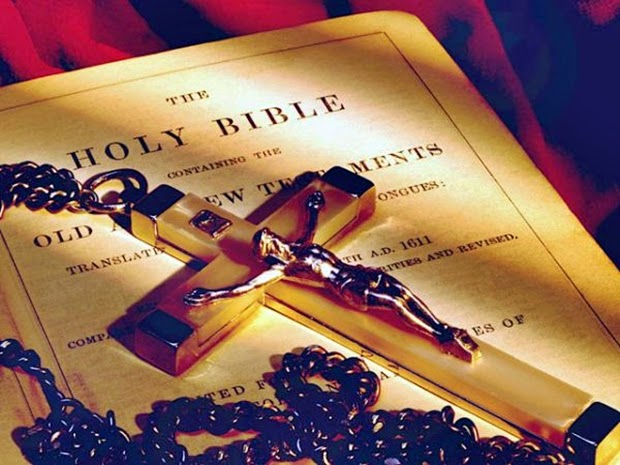Bible and Purgatory: new and old Testament, what does it say?

The passages of the present Catechism of the Catholic Church (paragraphs 1030-1032) explain the teaching of the Catholic Church on the widely misunderstood subject of Purgatory. If the Church still believes in Purgatory, the Catechism offers the definitive answer: Yes.
The Church believes in Purgatory because of the Bible
Before examining the Bible verses, however, we should note that one of Martin Luther's statements condemned by Pope Leo X in his papal bull Exsurge Domine (June 15, 1520) was Luther's belief that "Purgatory cannot be proved by the Sacred Scripture, which is in the canon “. In other words, while the Catholic Church bases the doctrine of Purgatory on both Scripture and tradition, Pope Leo emphasizes that the Scriptures are sufficient to prove the existence of Purgatory.
Evidence in the Old Testament
The main verse of the Old Testament which indicates the need for purgation after death (and therefore implies a place or state in which such purgation takes place - hence the name Purgatory) is 2 Maccabees 12:46:
It is therefore a holy and healthy thought to pray for the dead, so that they can be dissolved from sins.
If all those who die immediately went to heaven or hell, then this verse would be meaningless. Those who are in Heaven do not need prayer, "so that they can be freed from sins"; those who are in hell are unable to benefit from these prayers, because there is no escape from hell: damnation is eternal.
Hence, there must be a third place or state, where some of the dead are currently in the process of being "dissolved from sins". (A side note: Martin Luther argued that 1 and 2 Maccabees did not belong to the canon of the Old Testament, even though they had been accepted by the universal Church from the time the canon was installed. Thus his dispute, condemned by Pope Leo, that "Purgatory cannot be proved by Sacred Scripture which is in the canon".)
Evidence in the New Testament
Similar passages concerning purgation, and thus indicating a place or state where purgation is to take place, can be found in the New Testament. St. Peter and St. Paul both speak of "evidence" which is compared to a "purifying fire". In 1 Peter 1: 6-7, St. Peter refers to our necessary tests in this world:
In which you will rejoice a lot, if now you have to be saddened for a while in the various temptations: that the proof of your faith (much more precious than the gold that is tried by the fire) can be found to praise, glory and honor to the apparition of Jesus Christ.
And in 1 Corinthians 3: 13-15, St. Paul extends this image into life after this:
The work of every man must be manifest; for the day of the Lord will declare it, because it will be revealed in the fire; and the fire will prove the work of every man, whatever he is. If a man's work remains, he has built upon it, he will receive a reward. If a man's job burns, he will have to suffer a loss; but he himself will be saved, yet as from the fire.
The cleansing fire
But "he himself will be saved". Once again, the Church has recognized from the outset that St. Paul cannot speak here of those who are in the fire of hell because they are fires of torment, not of purgation - no one whose actions place him in hell does not they will never leave. Rather, this verse is the basis of the Church's belief that all those who suffer purgation after the end of their earthly life (what we call the Poor Souls in Purgatory) are certain to enter Heaven.
Christ speaks of forgiveness in the world to come
Christ himself, in Matthew 12: 31-32, speaks of forgiveness in this age (here on earth, as in 1 Peter 1: 6-7) and in the world to come (as in 1 Corinthians 3: 13-15):
Therefore I say to you: every sin and blasphemy will be forgiven men, but the blasphemy of the Spirit will not be forgiven. And whoever utters a word against the Son of man will be forgiven him: but whoever speaks against the Holy Spirit will not be forgiven him, neither in this world, nor in the world to come.
If all souls go directly to heaven or hell, then there is no forgiveness in the world to come. But if so, why should Christ mention the possibility of such a forgiveness?
Prayers and liturgies for the poor souls of Purgatory
All this explains why, since the early days of Christianity, Christians offered liturgies and prayers for the dead. Practice makes no sense if at least some souls do not undergo purification after this life.
In the fourth century, St. John Chrysostom, in his Homilies on 1 Corinthians, used the example of Job offering sacrifices for his living sons (Job 1: 5) to defend the practice of prayer and sacrifice for the dead. But Chrysostom was arguing not against those who thought such sacrifices were unnecessary, but against those who thought they were doing nothing good:
Let's help them and commemorate them. If Job's children were cleansed of their father's sacrifice, why should we doubt that our offerings for the dead bring them some consolation? We do not hesitate to help those who have died and to offer our prayers for them.
Sacred Tradition and Sacred Scripture agree
In this passage, Chrysostom summarizes all the Fathers of the Church, east and west, who never doubted that prayer and liturgy for the dead were both necessary and useful. Thus Sacred Tradition draws on and confirms the lessons of Sacred Scripture, which are found both in the Old and New Testaments, and indeed (as we have seen) in the words of Christ himself.